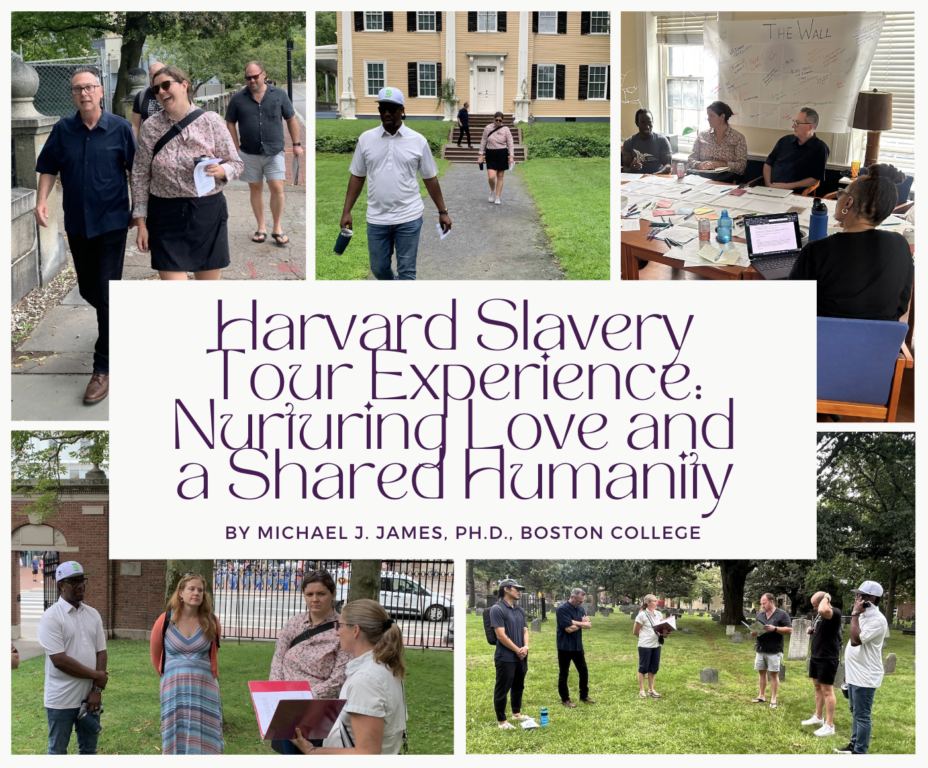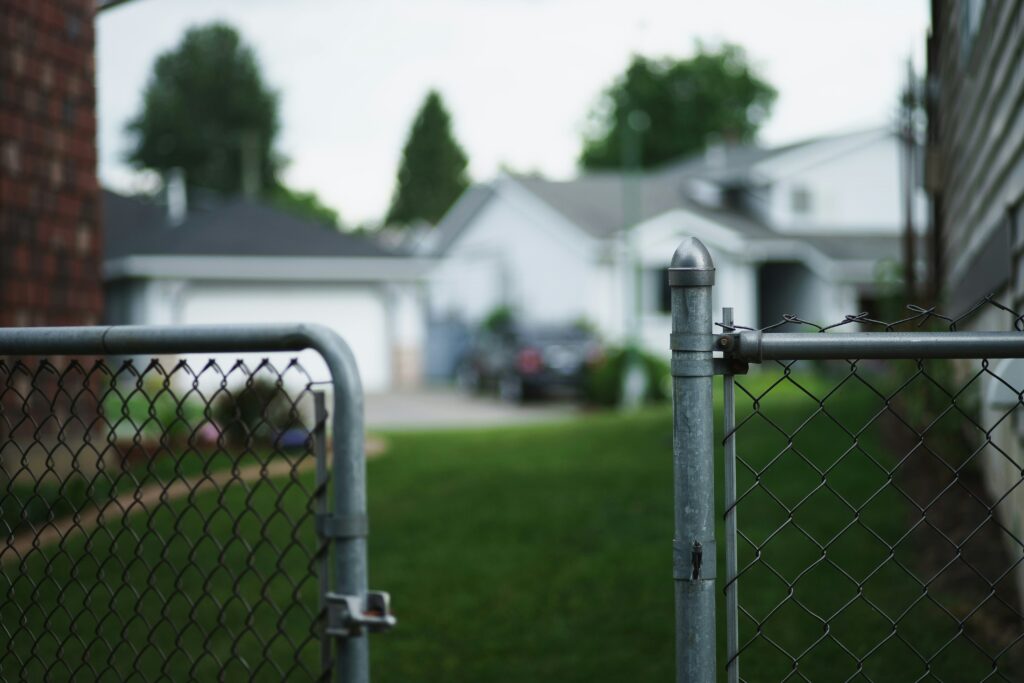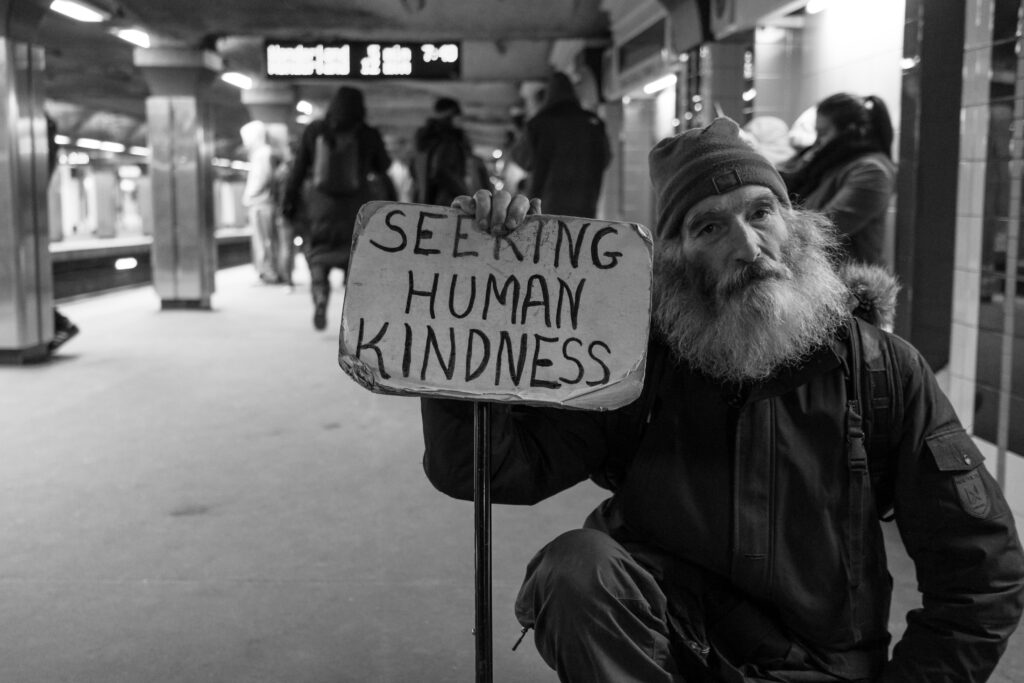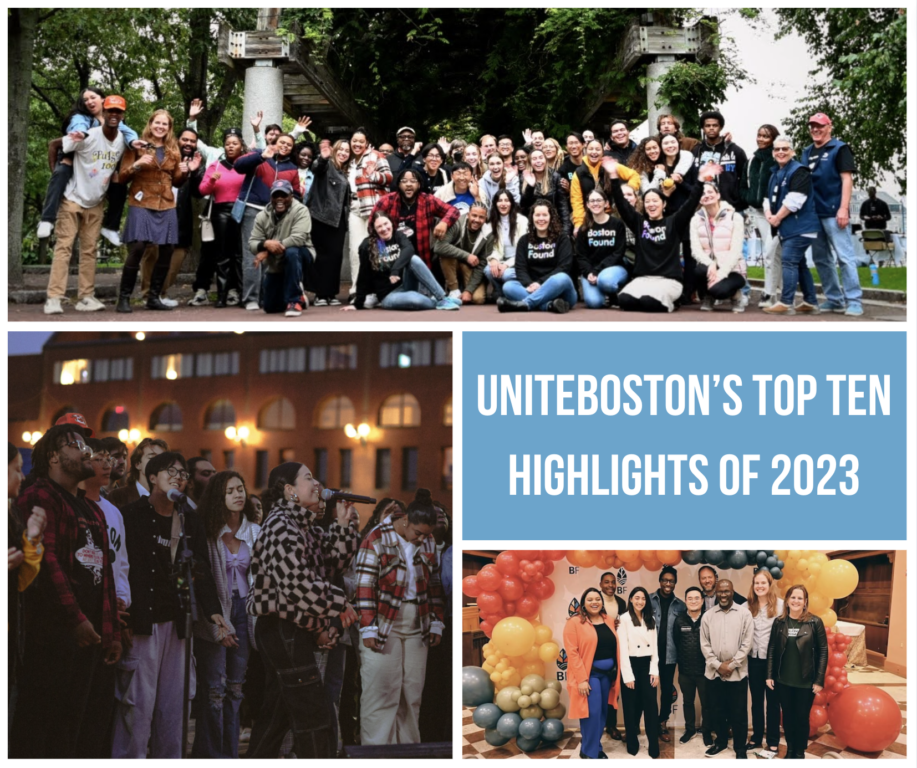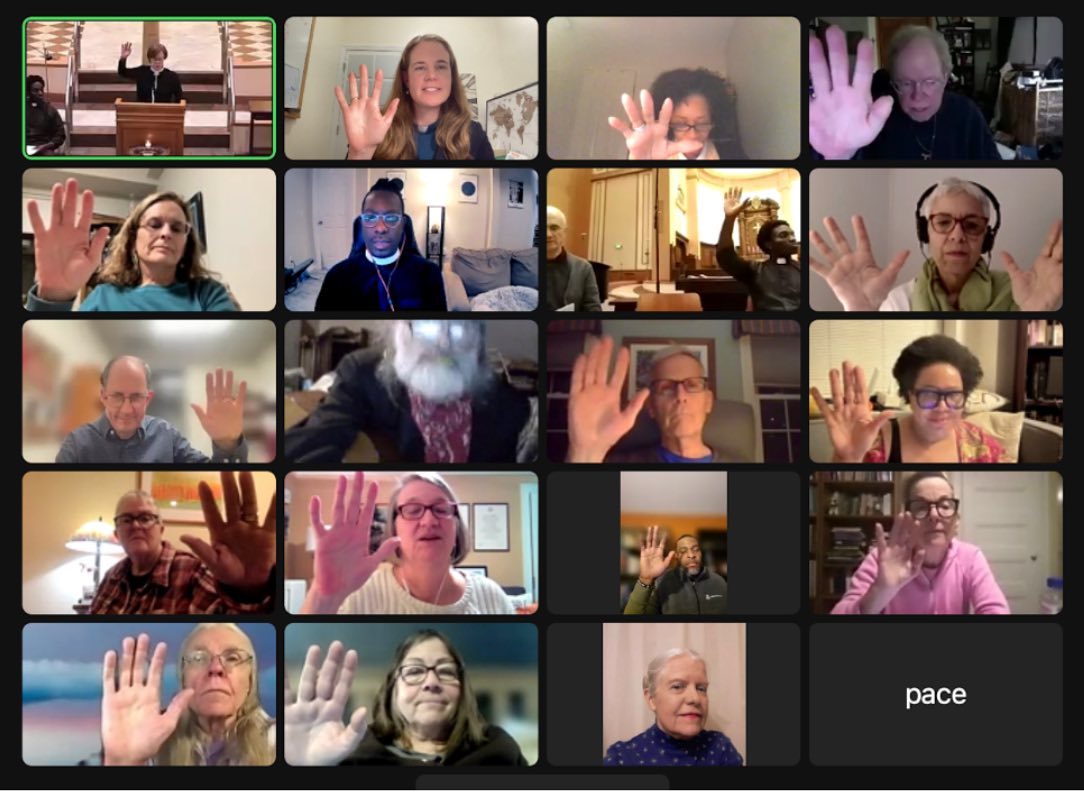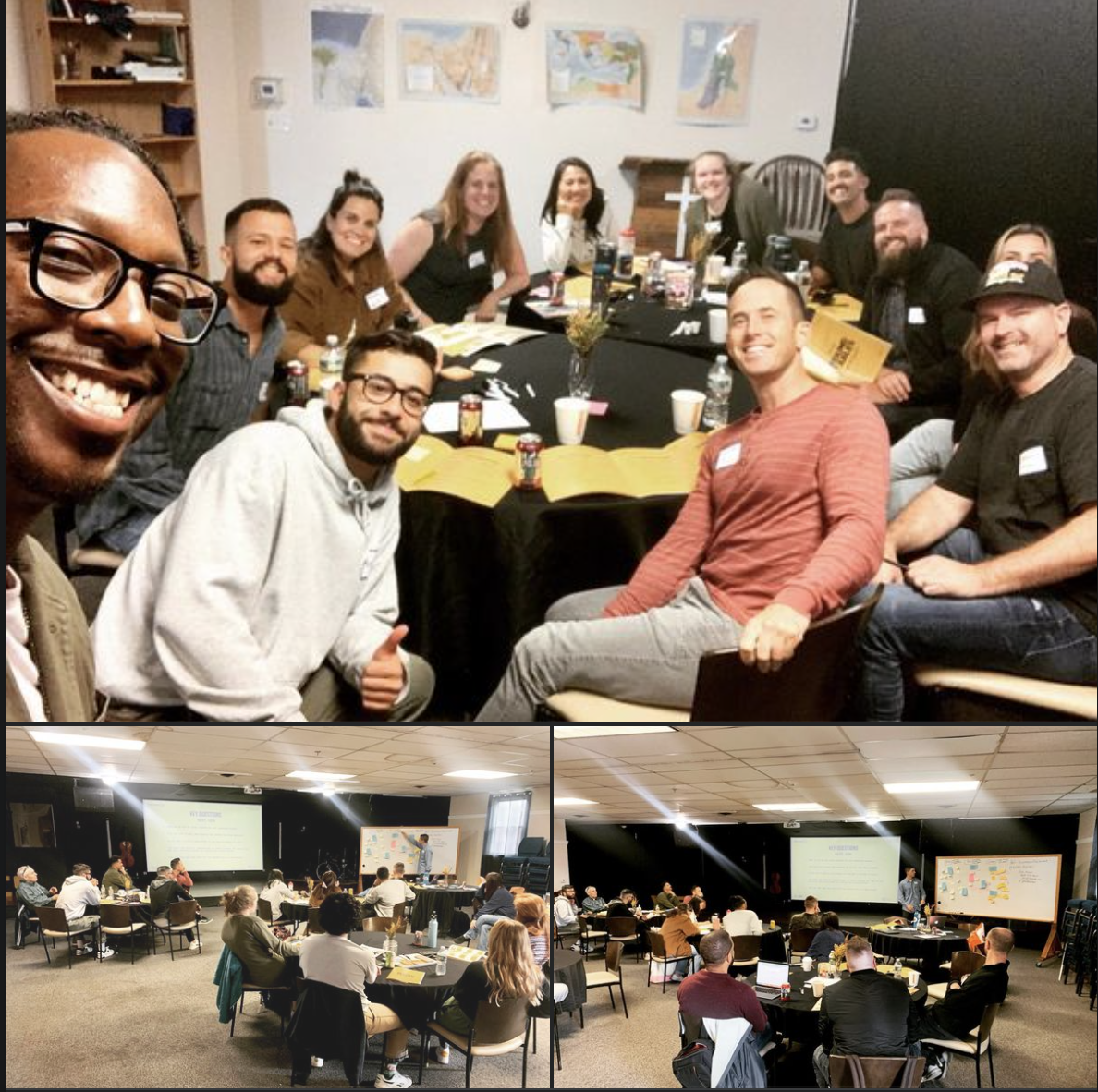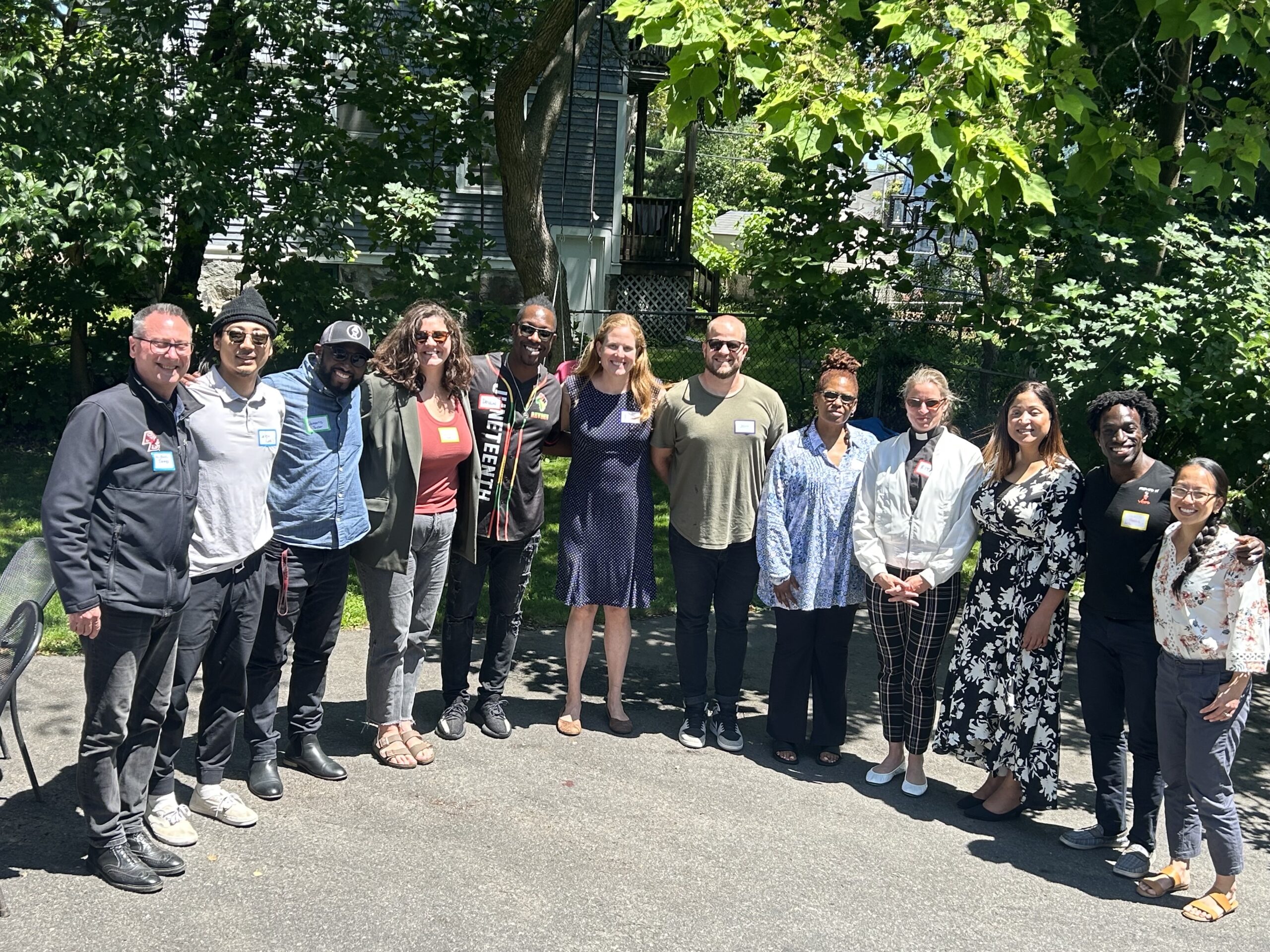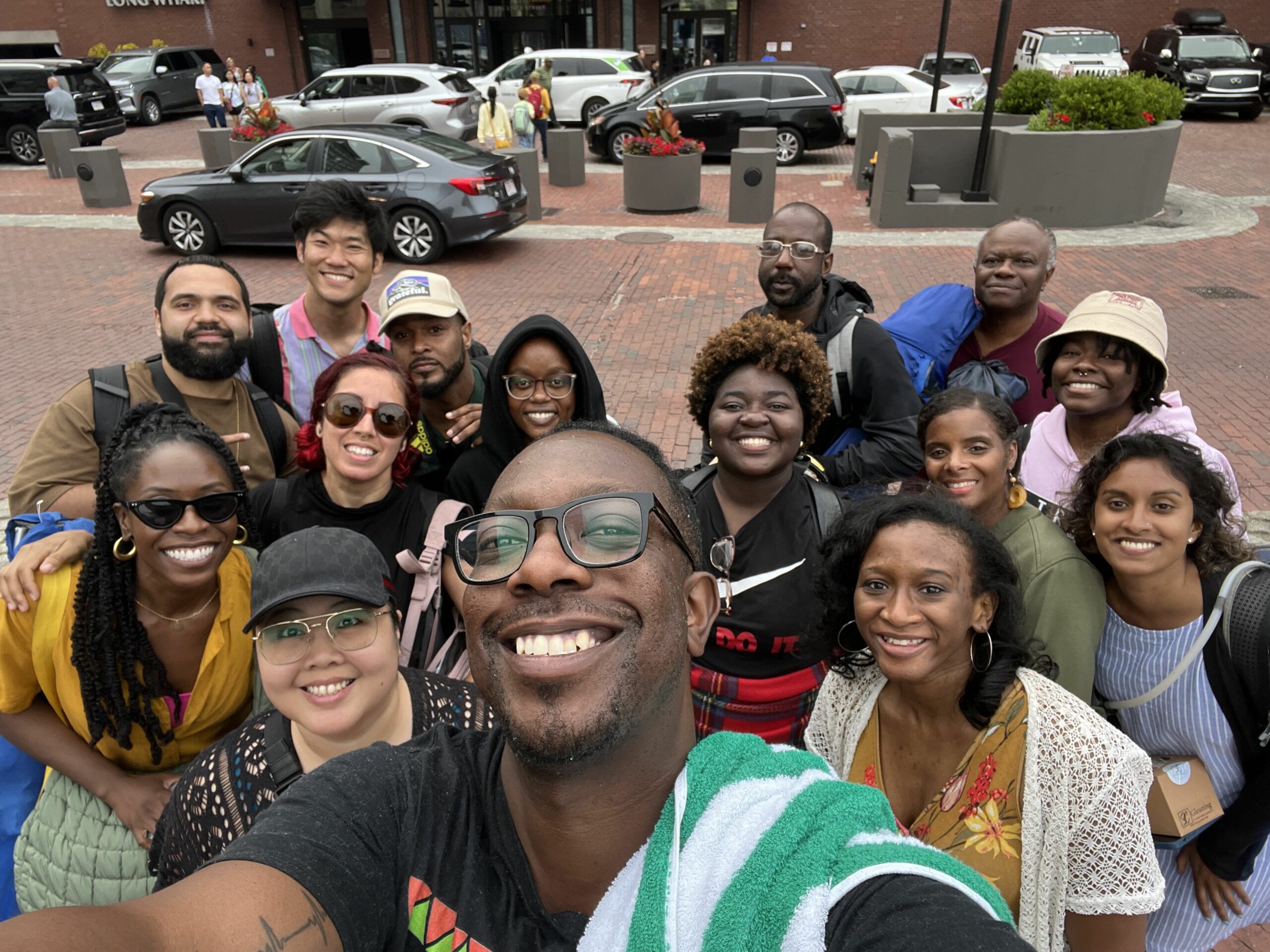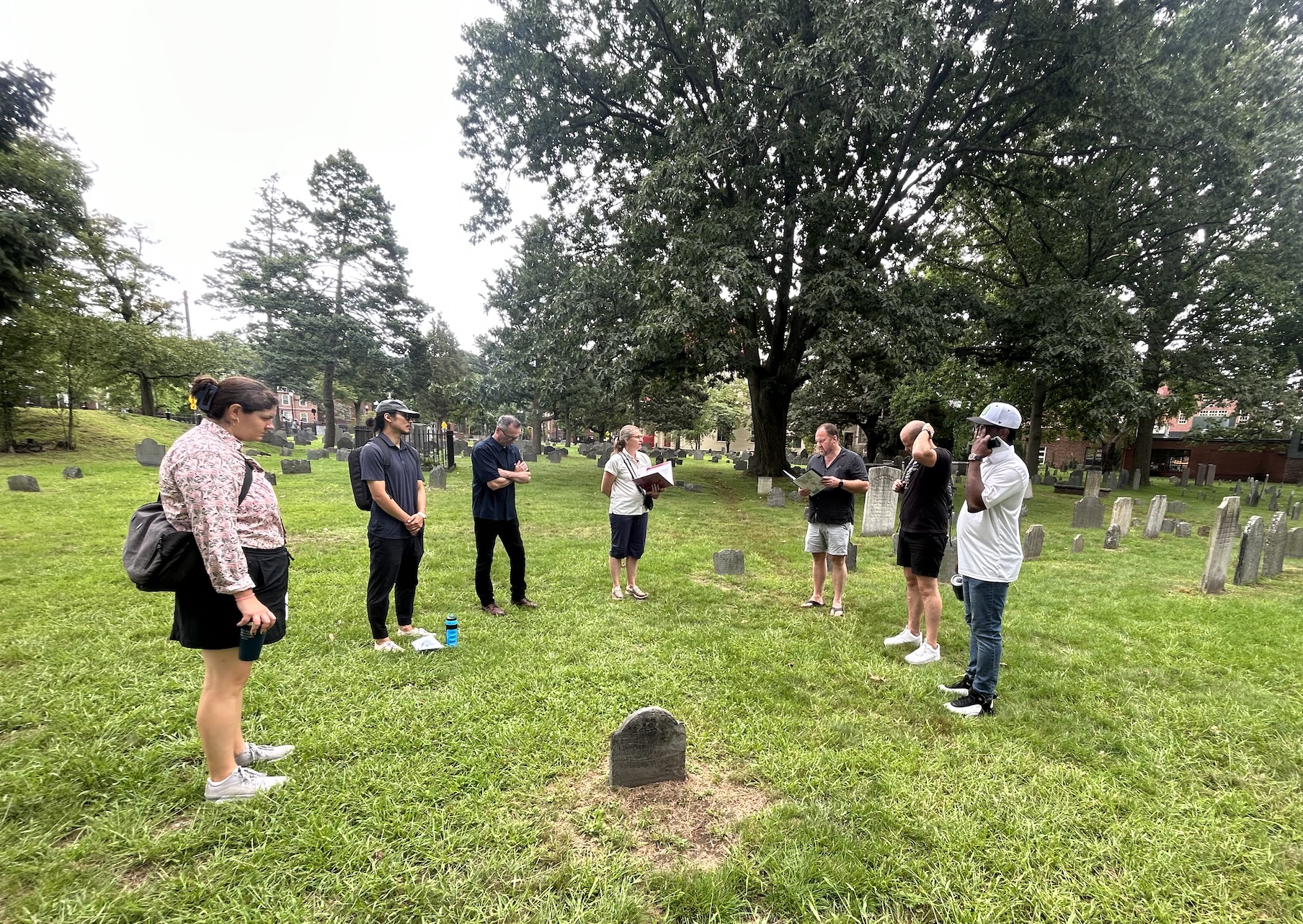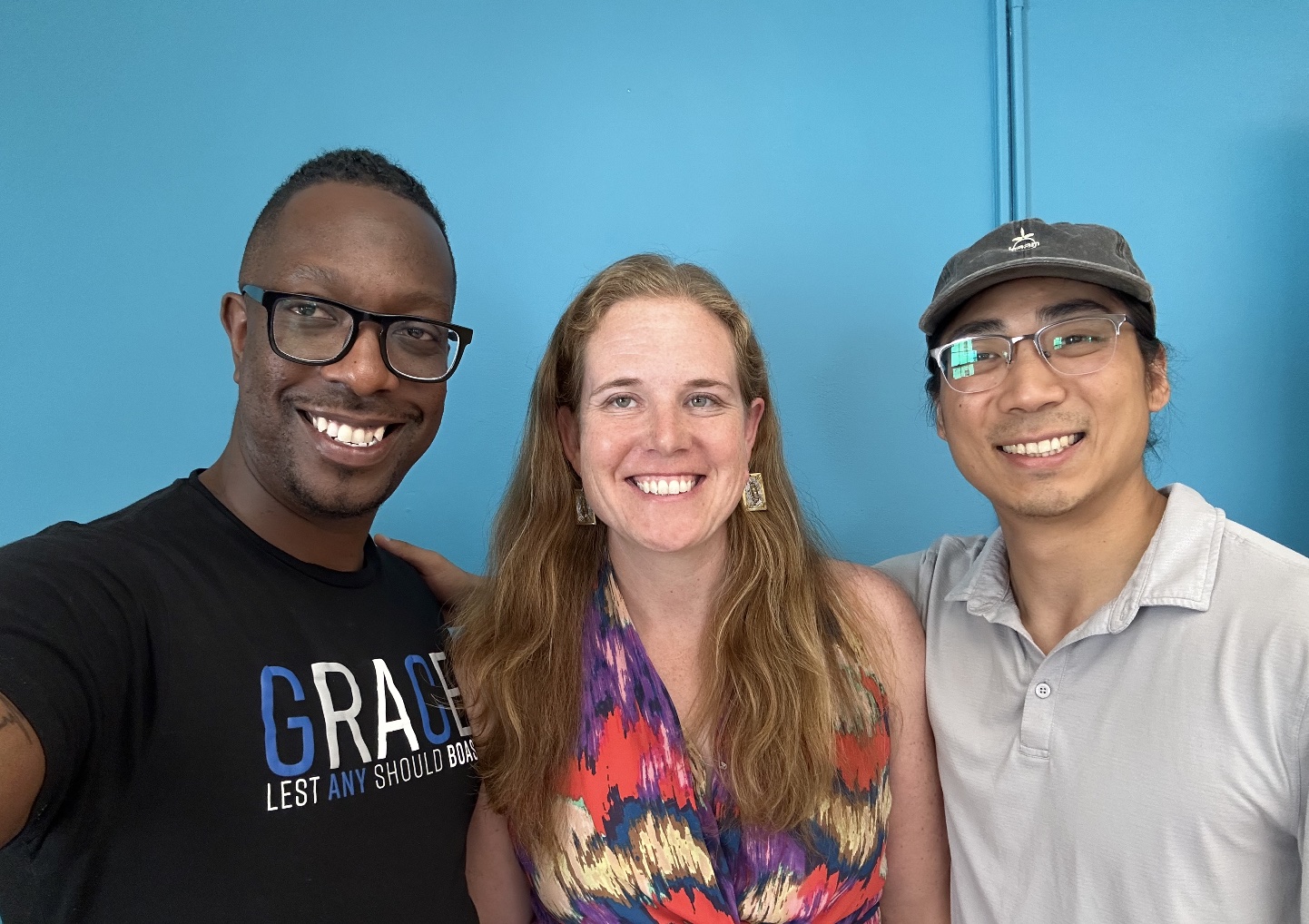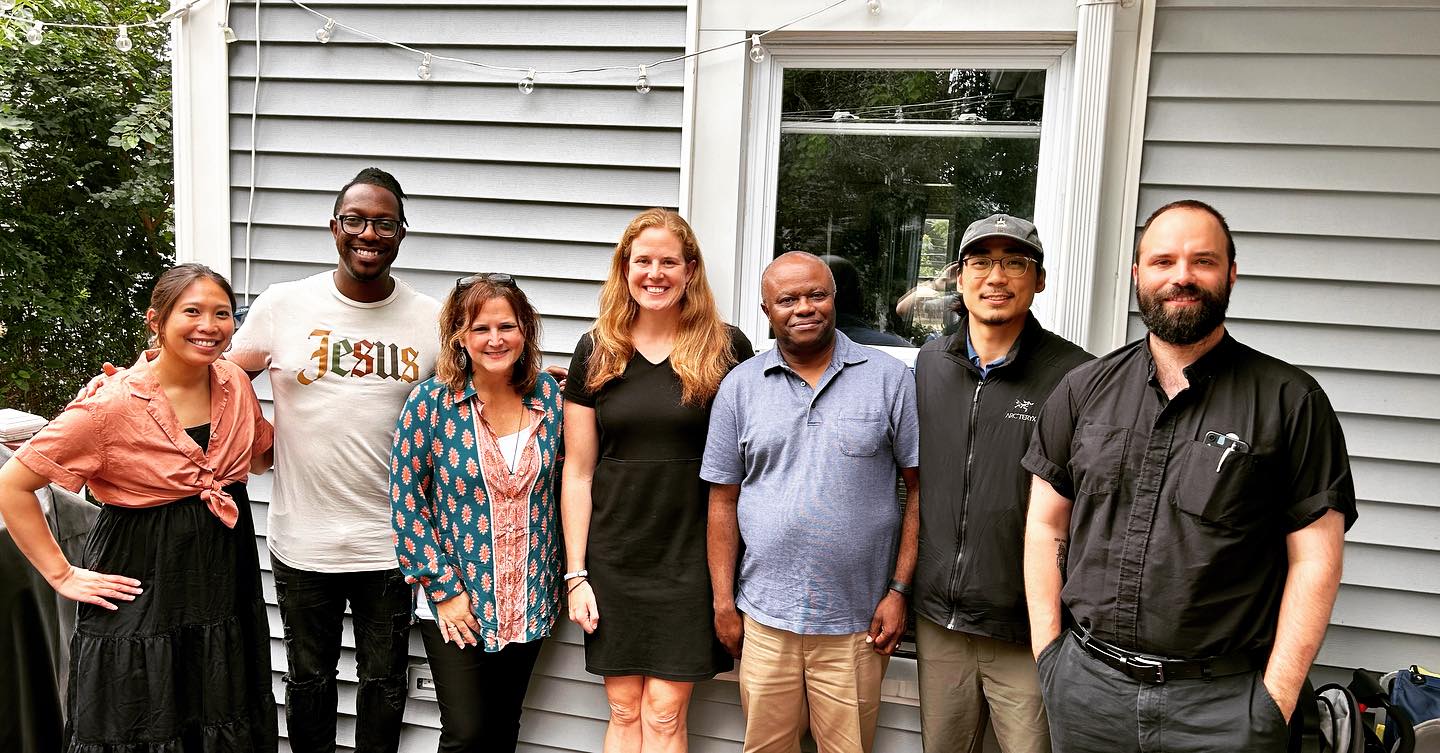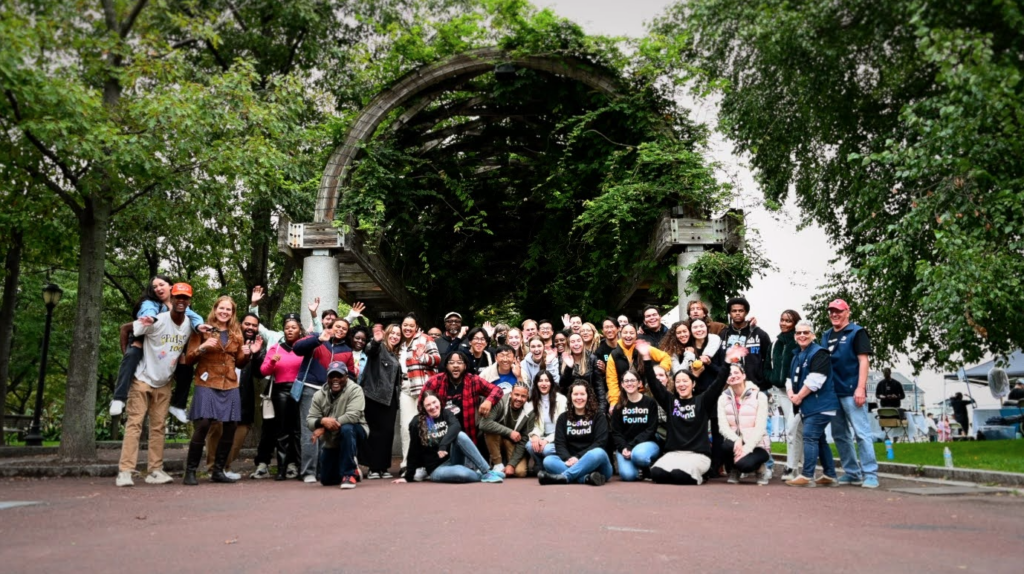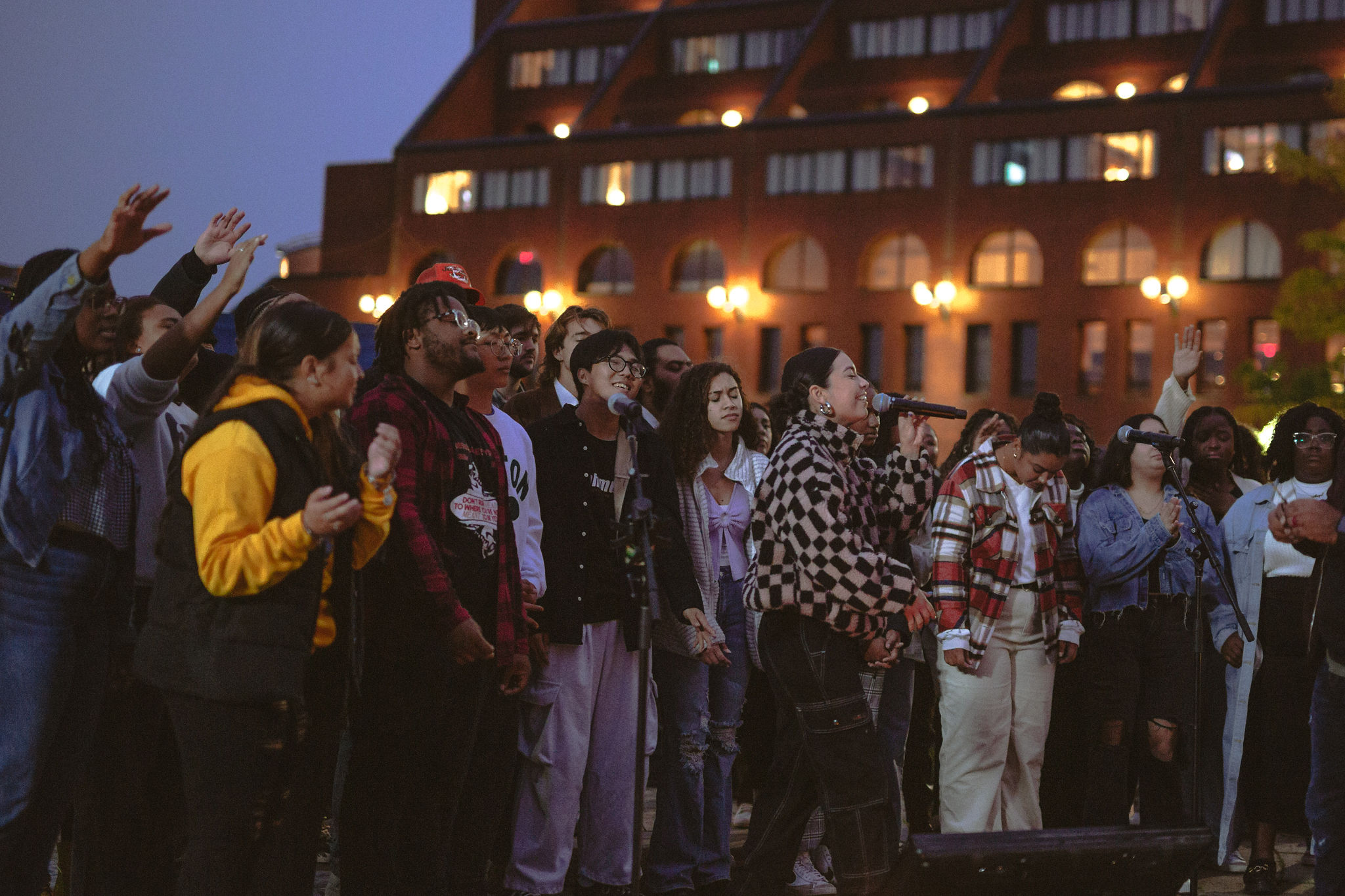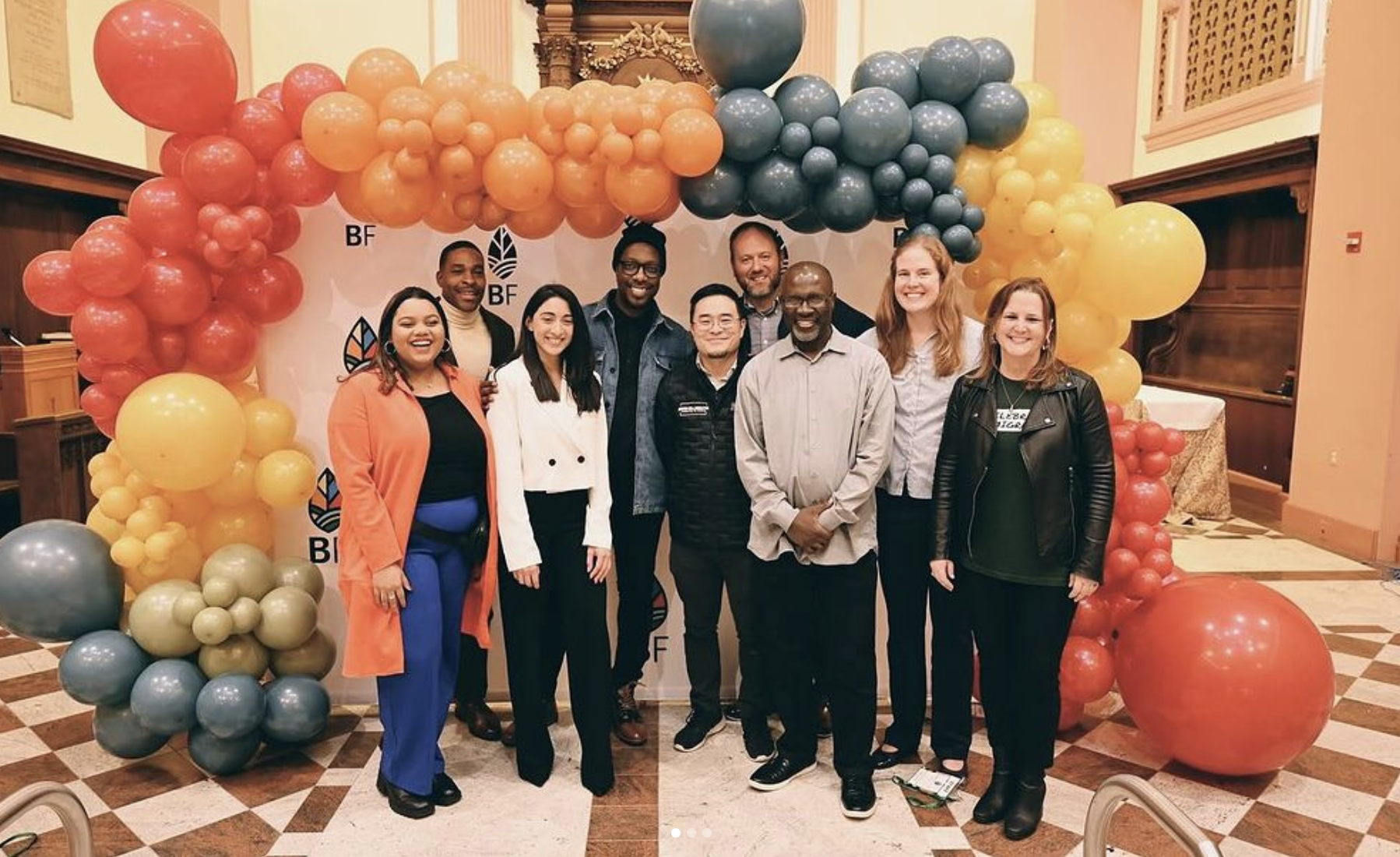
Thanks to everyone who participated in this year’s Week of Prayer for Christian Unity! This year’s theme and liturgies were developed together by Christian churches from Burkina Faso in western Africa, based on the text from the Gospel of St Luke: “You shall love the Lord your God … and your neighbor as yourself” (Luke 10:27). UB was honored to host a variety of gatherings this year, including prayer, fellowship, and also service initiatives that aligned with this theme.
UniteBoston staff members Rev. Kelly Fassett and Rev. Devlin Scott also wrote blogs exploring what this theme might mean practically for Christians in Boston. Rev. Kelly Fassett invites us to consider, “To whom must I become a neighbor?” and Rev. Devlin Scott challenges us to consider how we might inadvertently seek to justify ourselves instead of fully embracing Jesus’ radical acceptance.
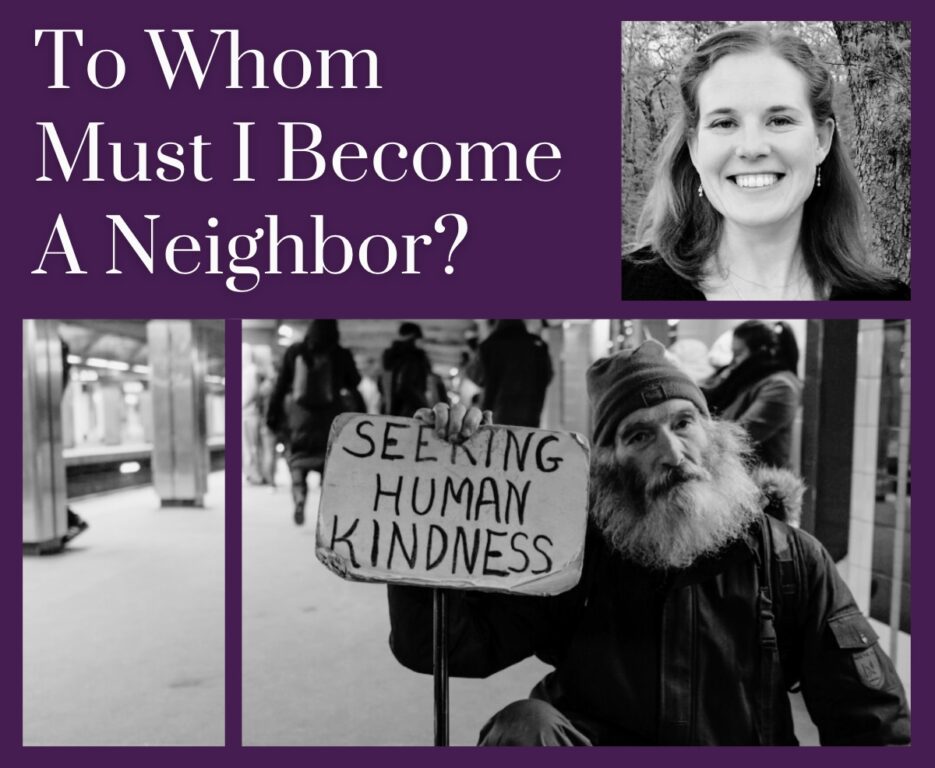
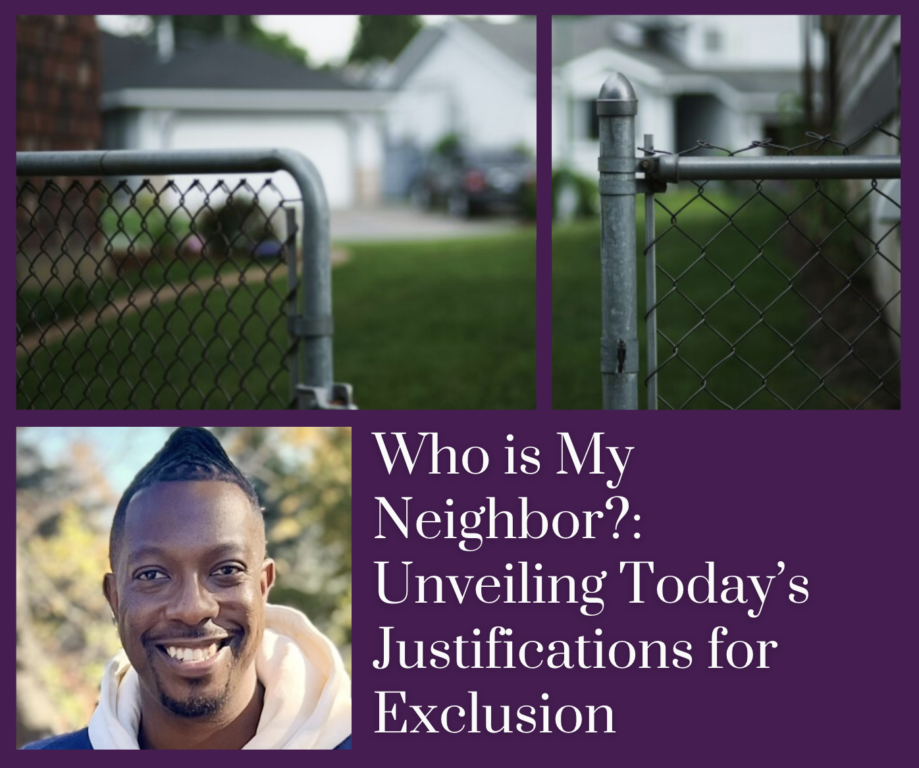
Lord Jesus, who prayed that all might be one, we pray to you for the unity of all Christians, according to your will, according to your means. May your Spirit enable us to experience the suffering caused by division, to see our sin and to hope beyond all hope. Amen.
Saturday January 20 – Loving Our Unhoused Neighbors: Miracle Mile Service Opportunity
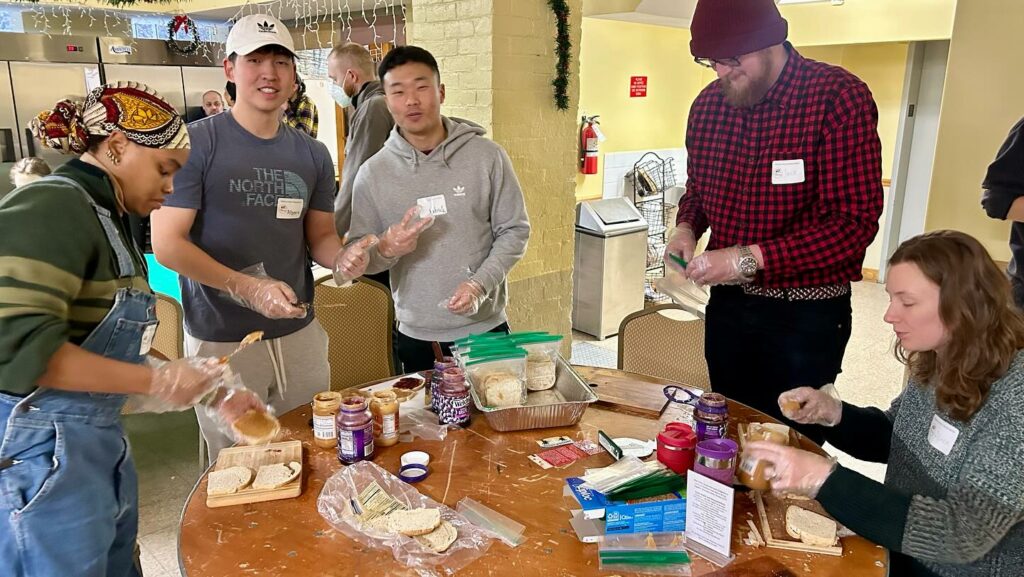
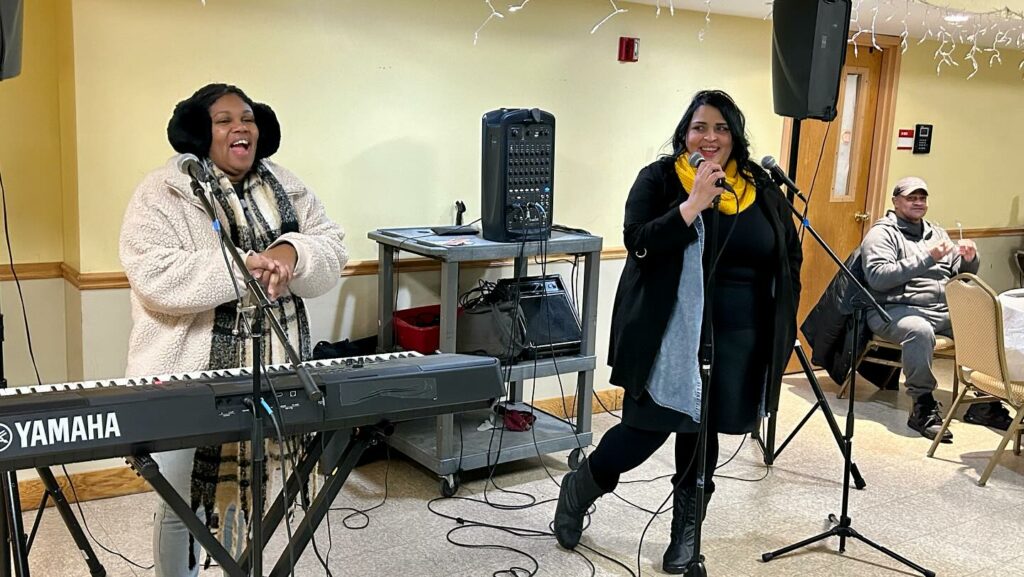
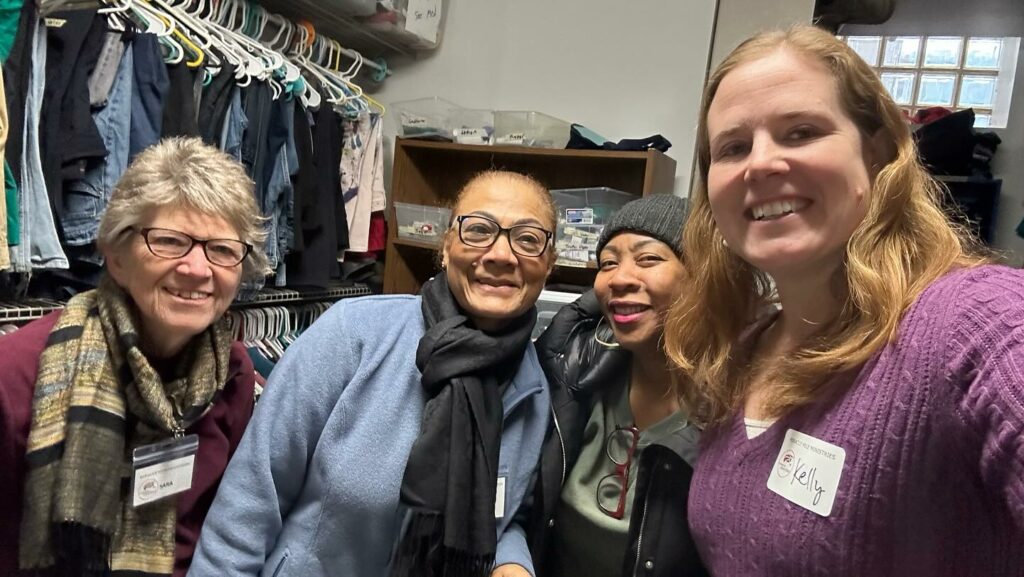
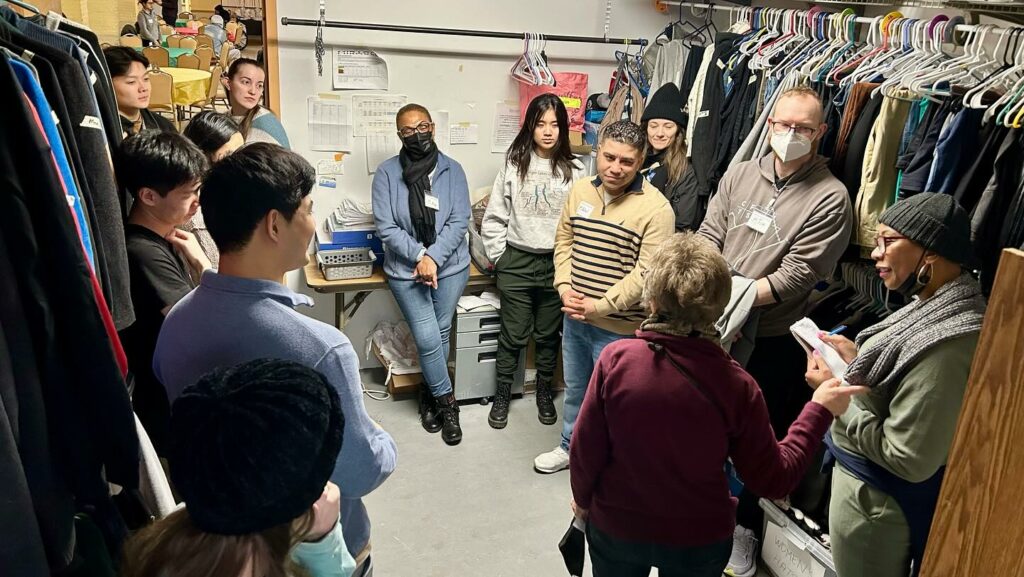
Miracle Mile Ministries is a collaborative of churches devoted to a sustained, deliberate, strategic response to the area we call “Miracle Mile,” a roughly 2-square-mile area in the South End of Boston often referred to as “Mass & Cass” or “Methadone Mile.” It is led by a core group of six Boston-area Lead Churches (Congregación León de Judá, Antioch Community Church Brighton, Cornerstone Church, Restoration City Church, Hilltop Church and Symphony Church) and also involves a dozen or so churches and parachurch ministries from throughout Boston’s neighboring communities who faithfully support this effort, week after week.
On Saturday January 20, 53 volunteers from 17 different churches served dozens of guests with a hot cup of coffee, a nourishing meal, clothing, conversation, and spiritual care. You can learn more about Miracle Mile Ministries here, and this is a regular service opportunity that you can participate in any Saturday morning! You can sign up to volunteer here. For questions, email Heidi, heidi.marie99@aol.com
“God of welcome, grant us the grace to risk embracing the stranger, tending their wounds and standing in solidarity with them. Strengthen our resolve to be kind and merciful and to act towards our brothers and sisters at all times as you do towards us.”
Sunday January 21 – An Afternoon of Christian Unity with The Focolare and Chemin Neuf Communities
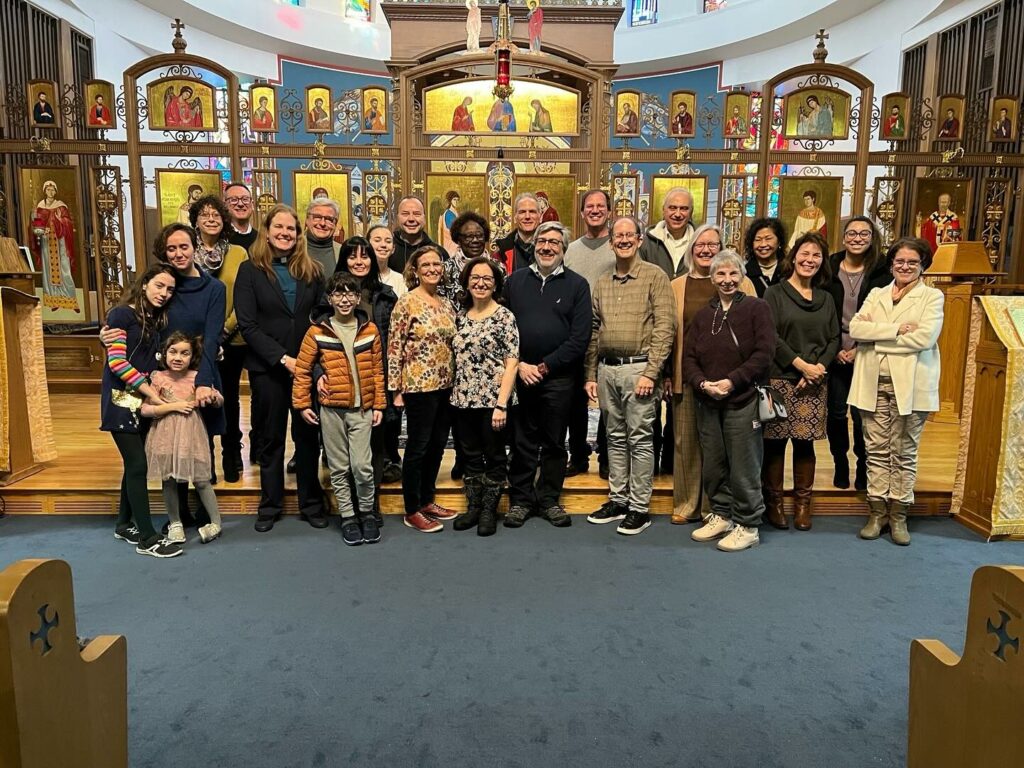
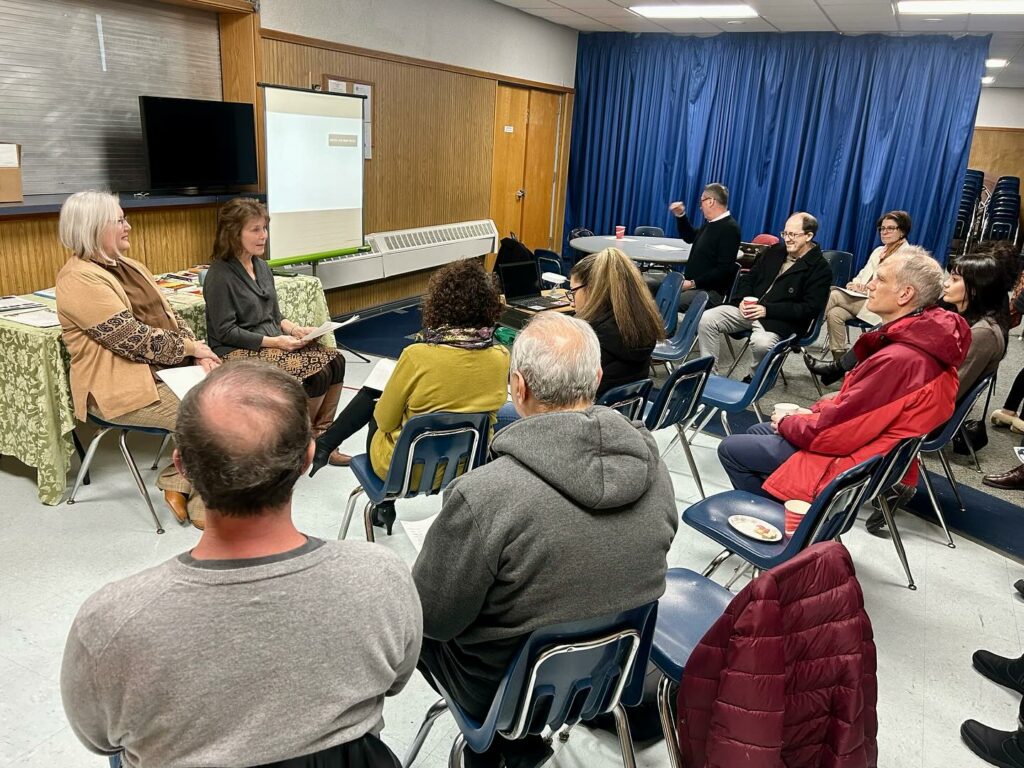
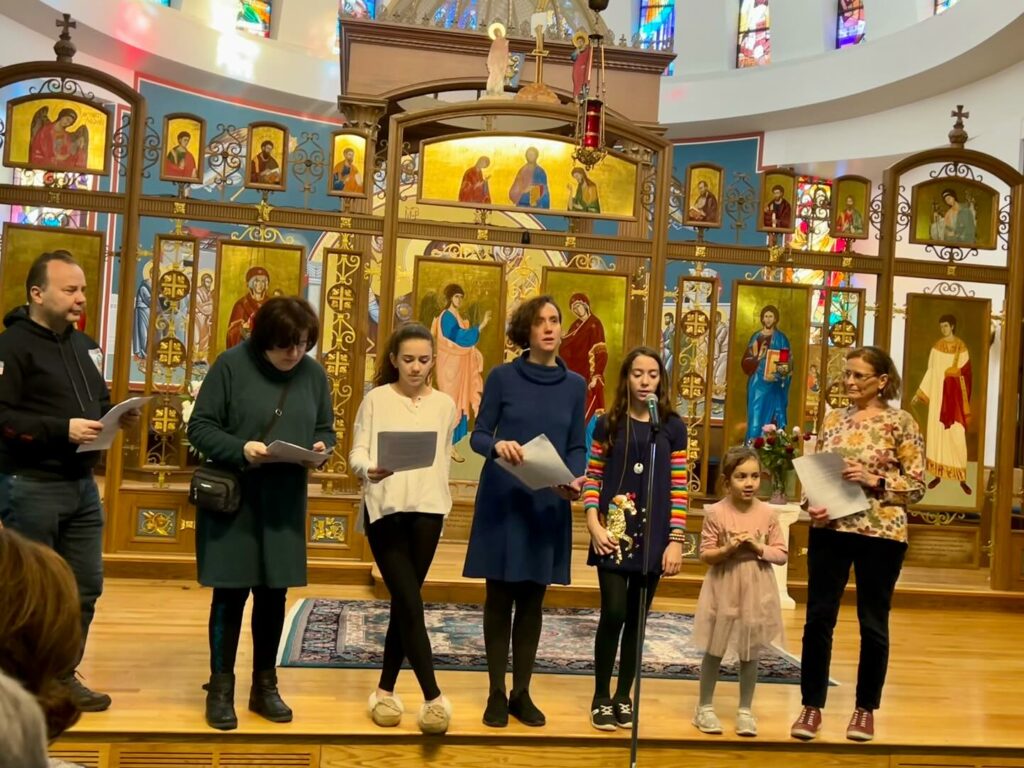
We gathered with the Focolare and Chemin Neuf communities for activities and prayer around the “love your neighbor” theme. We learned from Chiara Lubich that we must be the first to love, as that is what Christ did for us. We must develop the capacity to love Jesus in every person, as what we do or say to them we do to Jesus. The day ended with a liturgical prayer gathering in the beautiful sanctuary, including the youth leading us in the melodic choruses of “Baba Yetu / Our Father” song in Swahili.
Monday January 22 – “Love Your Neighbor” Neighborhood Dinner
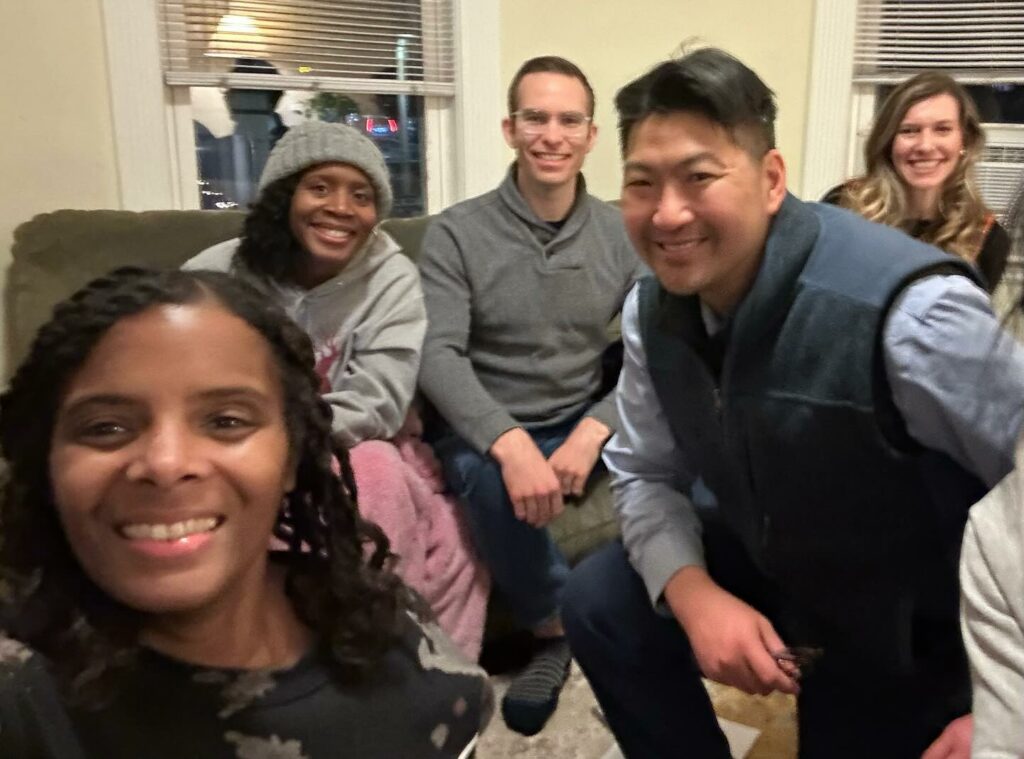
Cleopatra Muhammad hosted a neighborhood dinner on Monday evening centered on the theme of “Love Thy Neighbor.” It was as intimate gathering where they ate, got to know one another and took a creative look at what it means to love our neighbor. She said, “My favorite part was hearing and seeing people’s creative take on the story of the Good Samaritan – through poetry, re-imagining the story in a modern day setting, free write, and drawing.”
Tuesday January 23 – Taize Prayer Gathering
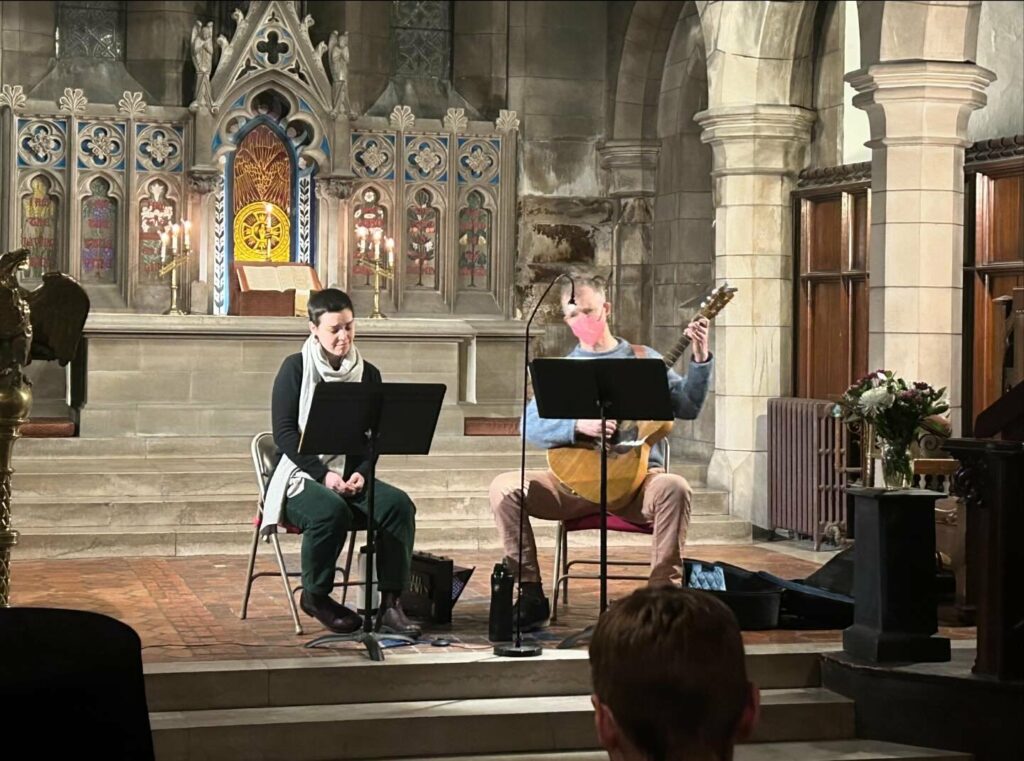
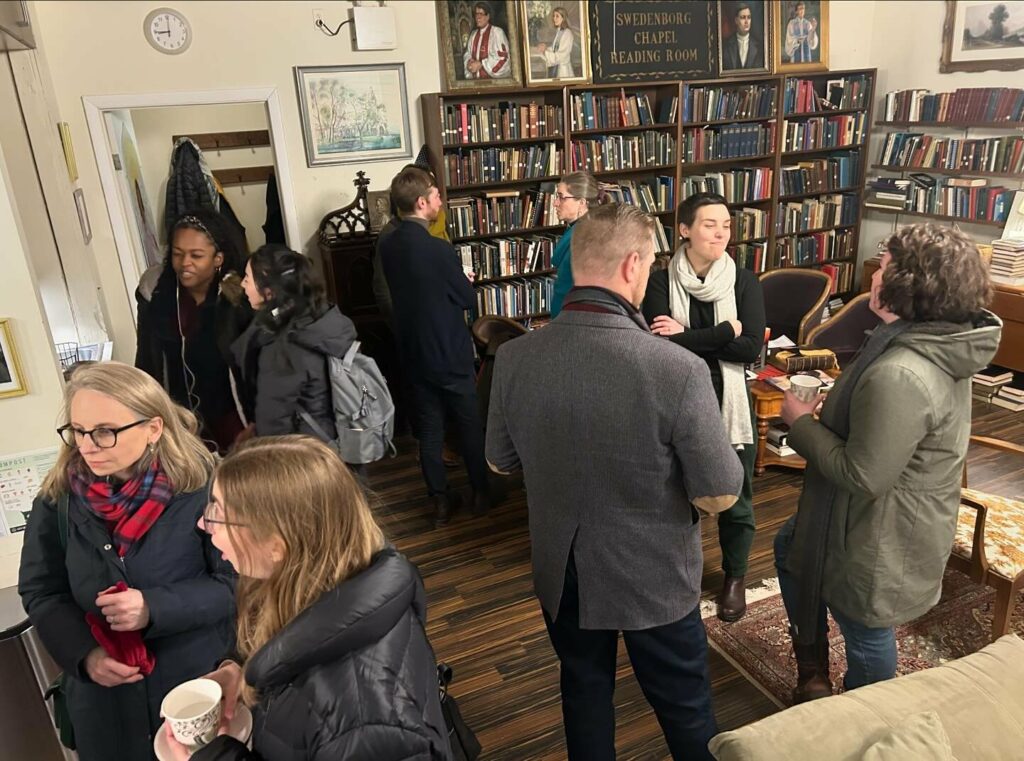
Tuesday evening’s Taize prayer service in Cambridge was absolutely beautiful visually and musically. It incorporated meditative song, silence and prayer around Jesus’ call to love our neighbor. The Taizé Community is an ecumenical Christian brotherhood in Burgundy, France, composed of over 100 brothers from all over the world, from Catholic and Protestant traditions, a true “parable of community” that wants its life to be a sign of reconciliation between divided Christians and between separated peoples.
Thursday January 25 – Christian Unity Prayer Gathering
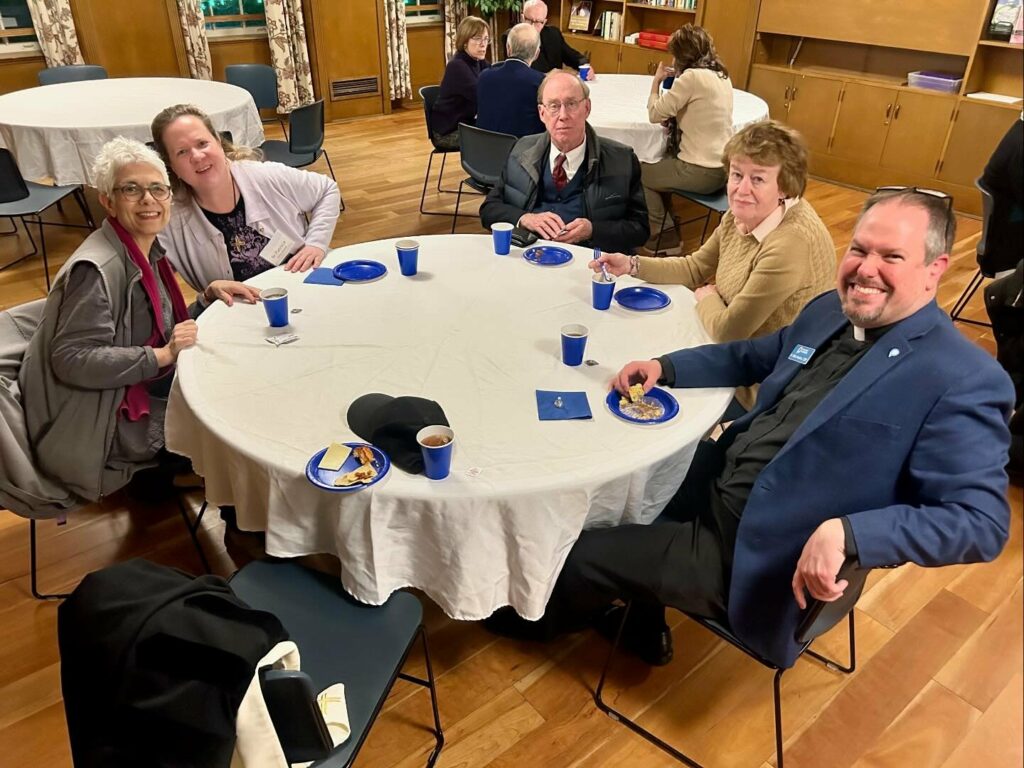
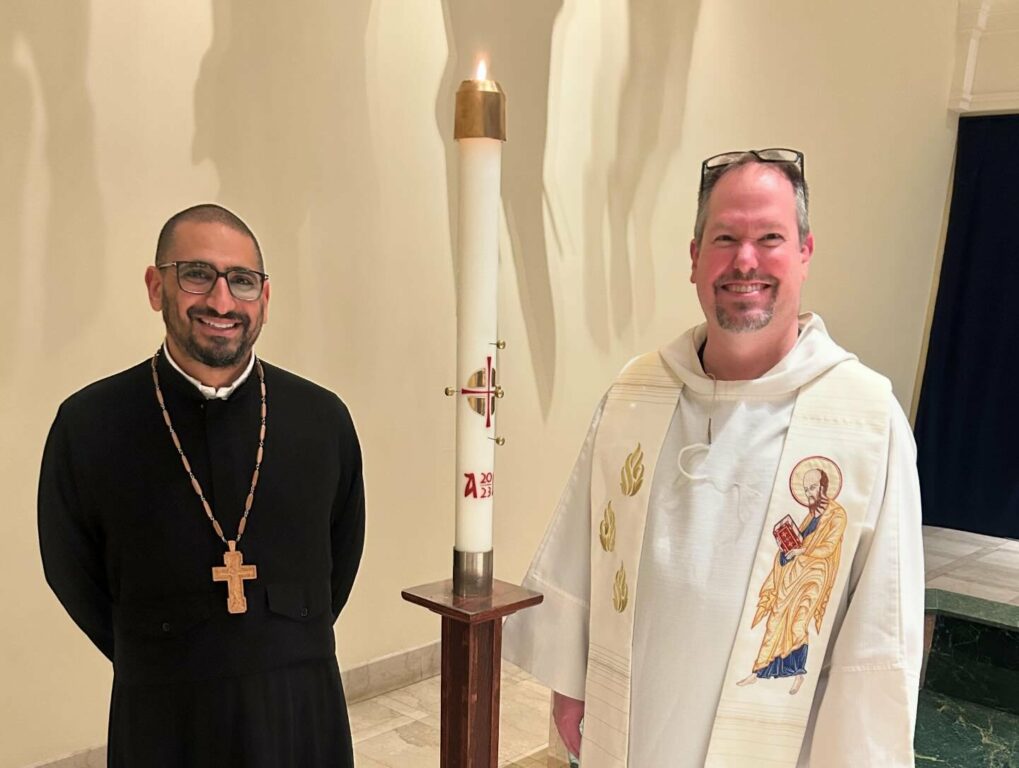
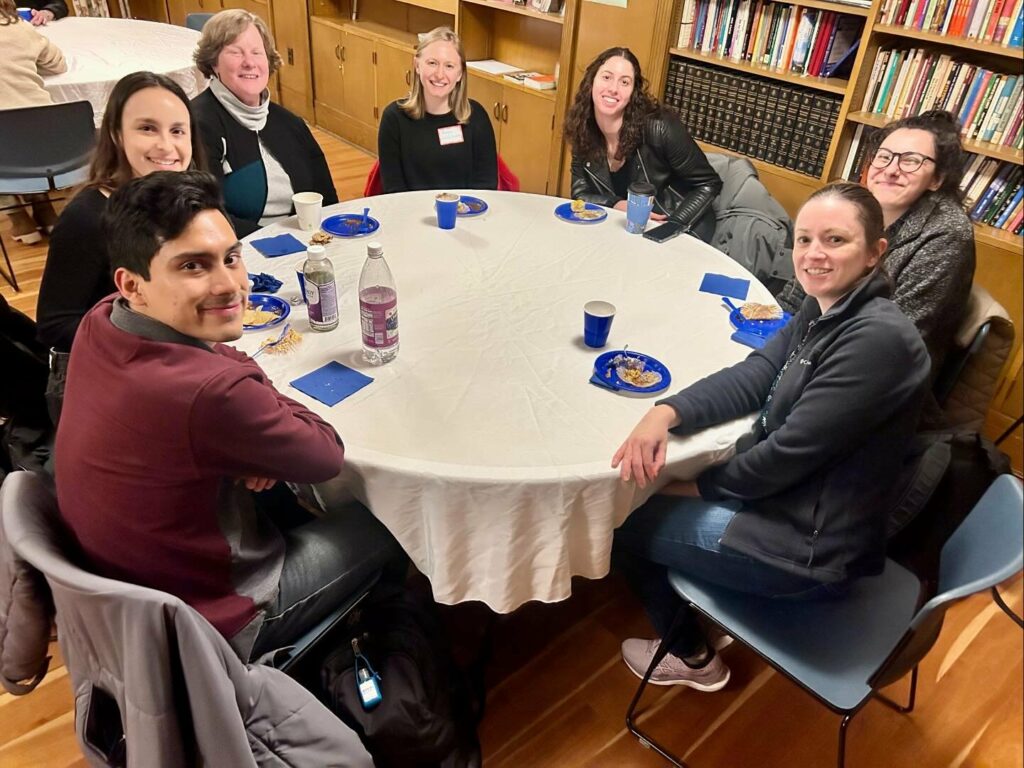
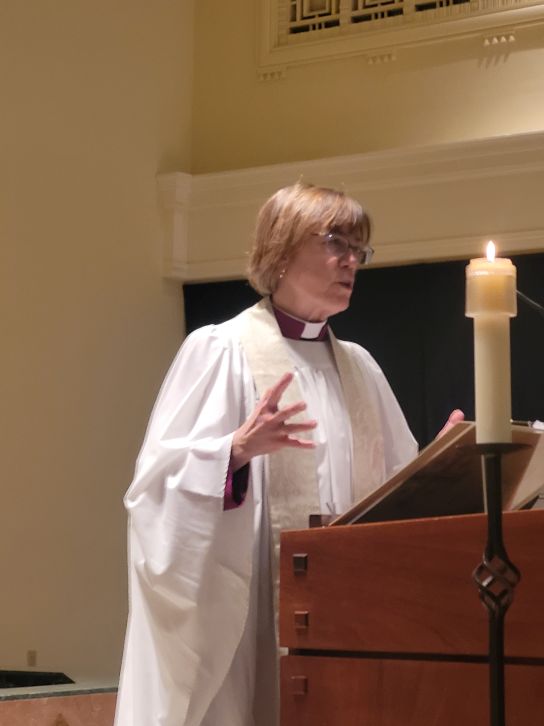
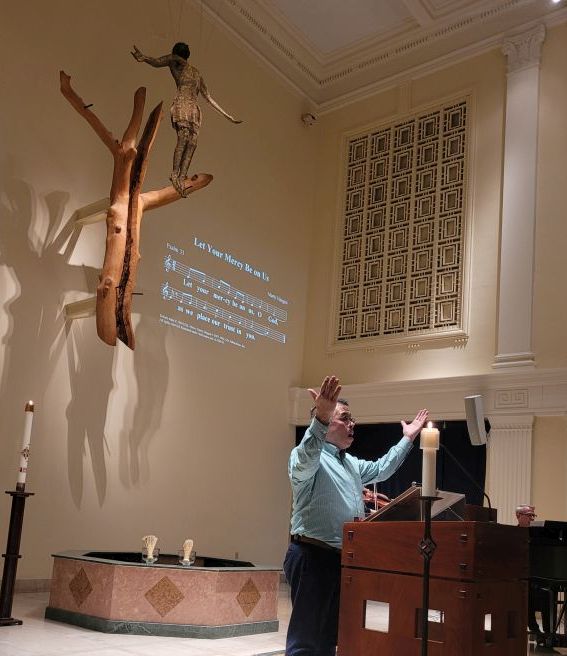
We had the privilege and honor of praying with clergy representing Catholic, Orthodox, Baptist, and Episcopal traditions at the Paulist Center and Chapel on Thursday evening for the Octave of this Week of Prayer for Christian Unity. It was an incredible time of prayer and ecumenical encounter as we enjoyed beautiful music, heard the call to care for creation by Dean Amy McCreath, and prayed for the needs of one another. To God be the glory!
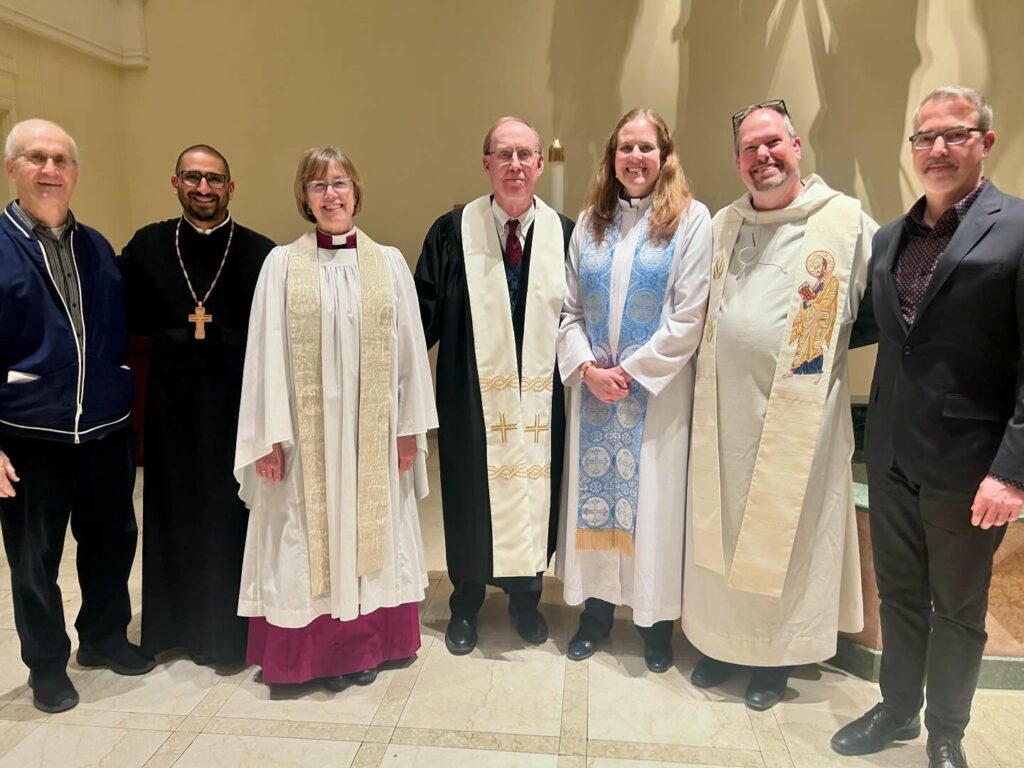
Above: Clergy at the Closing gathering for the Week of Prayer for Christian Unity. From left to right: Fr. Tom Ryan (Catholic), Fr. Mina Kaddis (Orthodox), Dean Amy McCreath (Episcopal), Rev. Colin Leitch (Swedenborgian), Rev. Kelly Fassett (Baptist), Fr. Rich Andre (Catholic), Music Director Nourmand Goui
God, our healer, we who are scattered like sheep without a shepherd, ask you to gather us into one fold. Enliven us by your Spirit and send us again, two by two, to be the light of the world and the salt of the earth.
